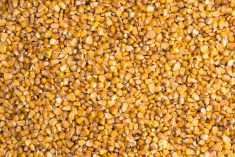ICE Futures Canada remains fairly confident that the milling wheat, durum and barley futures contracts on its trading platform will remain viable risk tools.
Thus, the Winnipeg-based exchange is willing to give those contracts some additional time to catch on with market participants.
The milling wheat, durum and barley contracts on the ICE Canada trading platform have failed to attract any kind of significant trading interest, with the last actual trades occurring in the middle of December.
The last trade in the milling wheat contract on the exchange occurred on Dec. 11; the durum future last saw some actual volume on Dec. 17, while the last barley contract was traded on Dec. 13, based on data from ICE.
Read Also

U.S. grains: Wheat futures rise on supply snags in top-exporter Russia
U.S. wheat futures closed higher on Thursday on concerns over the limited availability of supplies for export in Russia, analysts said.
Open interest in milling wheat is confined to the March future and as of Jan. 30 was pegged at 15. Durum open interest was also concentrated in the March future and totalled 31. No open interest currently exists in the barley future, ICE data shows.
"Much of the action in December saw the contracts trade as they should," said Brad Vannan, president of ICE Futures Canada.
There was a good convergence of the milling wheat, durum and barley futures contracts with the cash market, which is what those futures contracts were designed for, he said.
The fact that the convergence was so successful shows that confidence in using the milling wheat, durum and barley contracts will grow among farmers and companies, Vannan said.
He acknowledged market participants still don’t look upon the milling wheat, durum and barley contracts as "go-to risk tools" yet, but was still optimistic it will occur.
Vannan also felt the structure of the contract was sound and no immediate changes were being considered at this time.
Developing utilization of the contracts by market participants will be given more time as a result, and it was hoped that as more outlets become familiar with the commodities as risk management options, interest in using those contracts will increase, he said.
— Dwayne Klassen writes for Commodity News Service Canada, a Winnipeg company specializing in grain and commodity market reporting.
CORRECTION, Feb. 1, 2013: A previous version of this article used the word "divergence" where "convergence" is now correctly used.

















